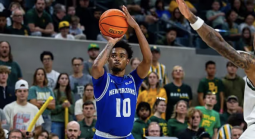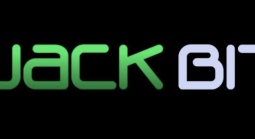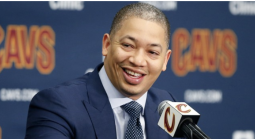Prediction Market News: Wallach Believes Momentum in Kalshi Lawsuits Beginning to Turn
Prediction market Kalshi has fought hard against a handful of US states looking to prevent the firm from competing with its own regulated sports gambling market. Earlier this year, Kalshi decided it would enter the sports betting space, and more recently it began offering lucrative parlay bets.
Kalshi bills itself as the only Commodity Futures Trading Commission (CFTC) regulated exchange in the US, for the moment at least. Polymarket is hoping to join the club soon.
Lawmakers and gambling commissions in some states often lump Kalshi in with sweepstakes casinos, daily fantasy sports sites and offshore sportsbooks and casinos. The real winners here may be the regional bookmaker utilizing Pay Per Head platforms. These days, bookies and agents are seen as mostly an afterthought confined to local police agencies, typically conducting investigations into other criminal activities having little to do with bookmaking (i.e. tax evasion and fraud).
Attorney Daniel Wallach says the tide is turning on these prediction markets like Kalshi. Others are more skeptical.
Wallach writes: "The momentum in the Kalshi lawsuits began to turn in the States' favor in Maryland. 2 key reasons: (1) MD's focus on Kalshi's prior judicial stmts got judge's attention & opened door to supp briefing; and (2) the Tribes joining forces w/ MD. The 2-0 tribes are back at it in MA."
The tribes in various states have also fought to keep prediction markets out.
From the tribes' amicus brief in Massachusetts:
"Recognizing the slippery slope of event contracts, Congress specifically authorized the CFTC to prohibit certain types of event contracts, including those that involve gaming and other activity that is unlawful under federal or state law."
Wallach points to the CFTC initial clarifications in determining whether sites like Kalshi can offer sports betting and similar gambling contracts.
"When announcing its rule, the CFTC clarified: [I]ts prohibition of 'gaming' contracts is consistent with Congress’s intent [for the CEA’s Special Rule] to 'prevent gambling through the futures markets' and to 'protect the public interest from gaming and other events contracts.'"
Robinhood is also mentioned in recent legal filings as they recently entered the prediction market sector.
"Ignoring this history and longstanding principles of federal statutory interpretation, Robinhood now presents an alternate reality—one in which a statutory scheme whose scope is limited to addressing the risk, discovery, and dissemination of commodity pricing information . . ."
Robinhood Markets (via its derivatives arm) does offer sports-related event contracts through its “Prediction Markets Hub,”
On August 19 2025 they announced that pro and college football prediction markets would be available for trade via the Robinhood app.
Robinhood offers its trading through Kalshi.
The Tribes cite Crypto.com as part of their brief.
"Robinhood’s sports event contracts do not qualify as swaps because they are not dependent on the occurrence or nonoccurrence of a sports event—i.e., whether the sports event occurs—but rather on the outcome of the sports event—i.e., which team wins."
It continues: "Robinhood’s sports event contracts are not hedging opportunities for interested parties to supplement the risk of a cancelled sporting event; instead, they are merely speculative wagers on the outcome of that sporting event or parts thereof."
An example of a hedging opportunity is provided in the brief.
"An example of what could arguably be a valid 'sports event contract' would be: If bad weather is threatening to cause the cancellation of a football game, the owner of the stadium could purchase an event contract that the team will not play their game.
"This would allow the stadium owner to hedge against the loss of revenue in the event the football game does not occur. This type of contract is not dependent on the outcome of the game, but rather on the occurrence or nonoccurrence of the game."
Tribes invoke the nondelegation doctrine, according to Wallach, who reference the brief:
"The CEA’s self-certification provisions are invalid, rendering both the CFTC’s implementing regulations allowing for self-certification and the contracts issued pursuant to those regulations invalid."
Conference Chair of the Indian Gaming Association, Victor Rocha, tweeted that he was once asked to join the Kalshi team.
"I told Kalshi no when they asked me to join their team because my spidey senses told me they were more interested in sidelining us than working with us. My instincts were spot on."
But Kalshi does have someone of great value on their advisory board, that would be US President Donald Trump's son, Donald Jr.
One can certainly argue that Kalshi as the better hand here, at least for the foreseeable future.
Kalshi's argument continues to be that, because the CFTC is the regulator, state efforts to treat these contracts as sports wagering (and apply state licensing requirements) are pre-empted by federal law.
Currently, the Commodity Futures Trading Commission (CFTC) does not have a permanently confirmed chairman.
The current Acting Chairman of the Commodity Futures Trading Commission (CFTC) is Caroline D. Pham, who was designated Acting Chairman on January 20, 2025.
Once a permanent chairman is voted in, things should get even more interesting in this space.
- Chris Costigan, Gambling911.com Publisher













